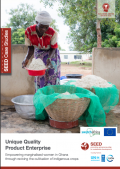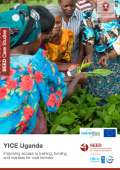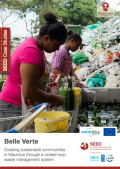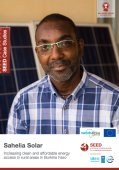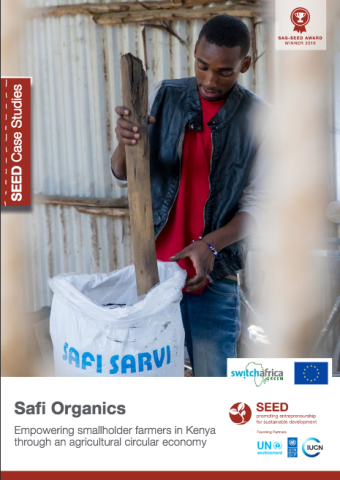
Based in Mwea County, one of the largest producers of rice in Kenya, Safi Organics is an eco-inclusive enterprise that aims to reverse declining agricultural yields, improve the income and food security of local farmers, and provide opportunities for local youth. The area has been used to grow rice continuously for around 70 years, with farmers experiencing slow declines in yield and productivity. Farmers also face challenges around the disposal of waste rice husk, which is traditionally burned in an uncontrolled manner, and high costs of imported inorganic fertiliser.
Safi Organics has connected these problems by creating an agricultural value chain from the local organic waste stream. Using an open source technology, the enterprise produces valuable agricultural inputs such as fertiliser and soil treatments designed to meet local conditions. Waste rice husk is collected from farmers and processed into biochar, the biochar is then stored, processed, and a local enzyme is added to enable microbial growth. The fertiliser and soil treatments are sold back to the farmers directly or through agents. Safi Organics has created a local circular economy that enables farmers to exploit the value of their waste in an environmentally friendly manner, as well as gain access to cheaper fertilisers and soils treatments. Safi Organics also employs a number of local youths, providing them with an income stream, and access to valuable training and experience.
The new case study series that emanated from the SWITCH Africa Green project "Promoting Eco-Entrepreneurship in Africa", implemented by SEED, showcases how innovative eco-inclusive start-up enterprises in Africa shape sustainable development on the ground. The individual case studies are enhanced with short multimedia features that showcase the innovation, the partnership, the support from SEED and the overall impact of each enterprise.

